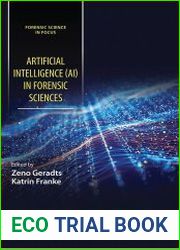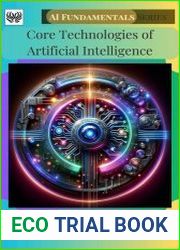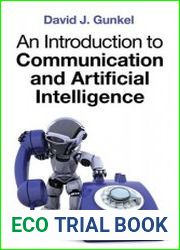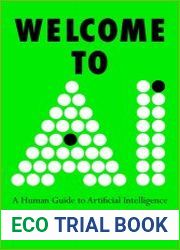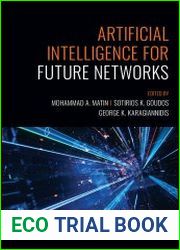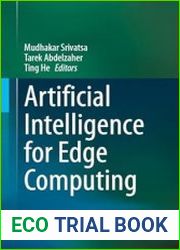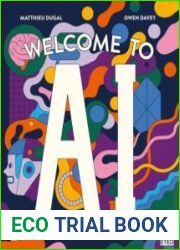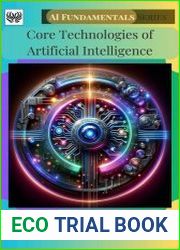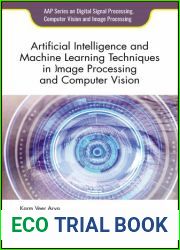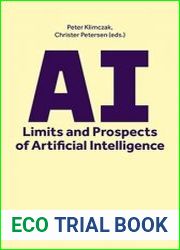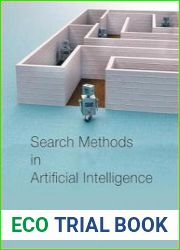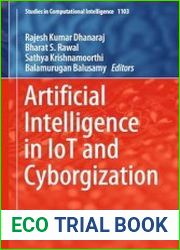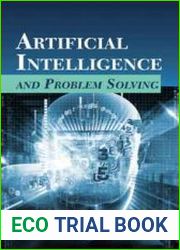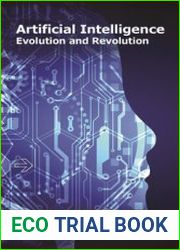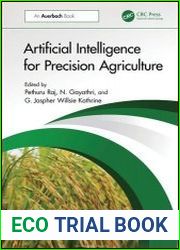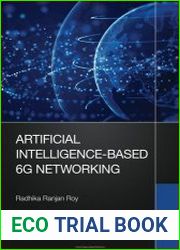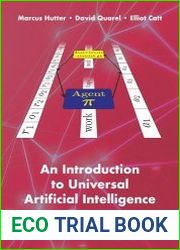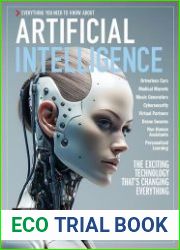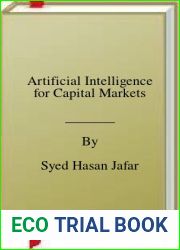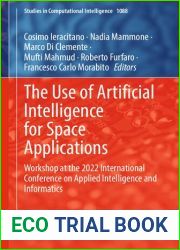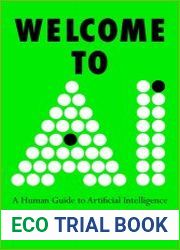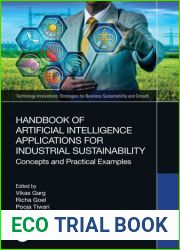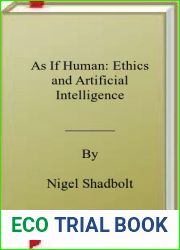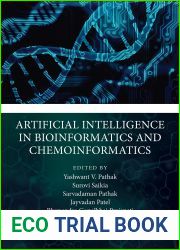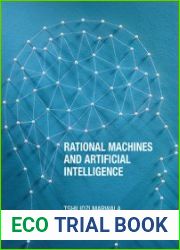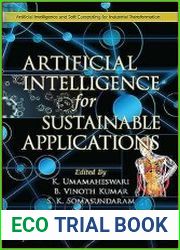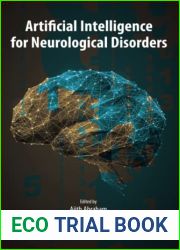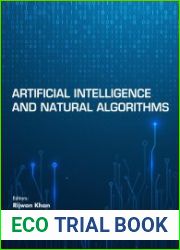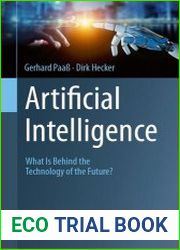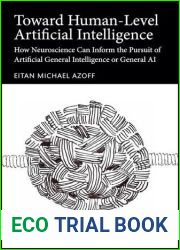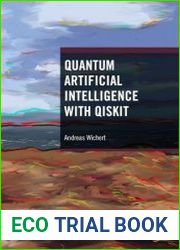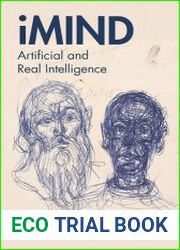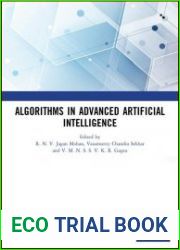
BOOKS - Artificial Intelligence (AI) in Forensic Sciences

Artificial Intelligence (AI) in Forensic Sciences
Author: Zeno Geradts, Katrin Franke
Year: 2024
Pages: 258
Format: PDF
File size: 13.0 MB
Language: ENG

Year: 2024
Pages: 258
Format: PDF
File size: 13.0 MB
Language: ENG

The book "Artificial Intelligence AI in Forensic Sciences" explores the impact of artificial intelligence (AI) on the field of forensic sciences, highlighting its potential to revolutionize the way we investigate crimes and solve mysteries. The author, a renowned expert in the field, examines the current state of AI technology in forensic sciences and discusses its applications, challenges, and limitations. He argues that AI has the power to transform the field by enhancing the accuracy and efficiency of forensic investigations, but also raises important ethical and legal questions related to privacy, bias, and accountability. The book begins with an overview of the history and development of AI technology, providing readers with a solid understanding of its evolution and current state. The author then delves into the various applications of AI in forensic sciences, including image recognition, natural language processing, and machine learning. He provides real-world examples of how AI is being used in crime labs, police departments, and other forensic settings to improve the speed and accuracy of investigations.
Книга «Искусственный интеллект ИИ в криминалистических науках» исследует влияние искусственного интеллекта (ИИ) на область криминалистических наук, подчеркивая его потенциал революционизировать способы расследования преступлений и раскрытия тайн. Автор, известный эксперт в этой области, изучает современное состояние технологий ИИ в криминалистике и обсуждает их применение, проблемы и ограничения. Он утверждает, что ИИ способен преобразовать эту область путем повышения точности и эффективности судебных расследований, но также поднимает важные этические и правовые вопросы, связанные с конфиденциальностью, предвзятостью и ответственностью. Книга начинается с обзора истории и развития технологий ИИ, предоставляя читателям твердое понимание его эволюции и современного состояния. Затем автор углубляется в различные области применения ИИ в криминалистике, включая распознавание изображений, обработку естественного языка и машинное обучение. Он приводит реальные примеры того, как ИИ используется в криминалистических лабораториях, полицейских управлениях и других криминалистических учреждениях для повышения скорости и точности расследований.
livre « L'intelligence artificielle de l'IA dans les sciences criminelles » explore l'impact de l'intelligence artificielle (IA) sur le domaine de la science scientifique, soulignant son potentiel à révolutionner les moyens d'enquêter sur les crimes et de résoudre les secrets. L'auteur, un expert célèbre dans ce domaine, étudie l'état actuel des technologies de l'IA dans la science scientifique et discute de leur application, de leurs problèmes et de leurs limites. Il affirme que l'IA est capable de transformer ce domaine en améliorant la précision et l'efficacité des enquêtes judiciaires, mais qu'elle soulève également d'importantes questions éthiques et juridiques liées à la confidentialité, aux préjugés et à la responsabilité. livre commence par un aperçu de l'histoire et de l'évolution des technologies de l'IA, fournissant aux lecteurs une bonne compréhension de son évolution et de son état moderne. L'auteur explore ensuite les différents domaines d'application de l'IA en criminalistique, y compris la reconnaissance d'images, le traitement du langage naturel et l'apprentissage automatique. Il donne des exemples concrets de la façon dont l'IA est utilisée dans les laboratoires médico-légaux, les services de police et d'autres institutions médico-légales pour améliorer la rapidité et la précision des enquêtes.
libro «Inteligencia Artificial IA en Ciencias Forenses» explora el impacto de la inteligencia artificial (IA) en el campo de las ciencias forenses, destacando su potencial para revolucionar formas de investigar crímenes y resolver secretos. autor, reconocido experto en la materia, estudia el estado actual de las tecnologías de IA en ciencias forenses y discute sus aplicaciones, problemas y limitaciones. Sostiene que la IA es capaz de transformar esta área mejorando la precisión y eficacia de las investigaciones judiciales, pero también plantea importantes cuestiones éticas y legales relacionadas con la confidencialidad, el sesgo y la responsabilidad. libro comienza con una revisión de la historia y el desarrollo de la tecnología de IA, proporcionando a los lectores una comprensión sólida de su evolución y estado moderno. A continuación, el autor profundiza en los diferentes campos de aplicación de la IA en ciencias forenses, incluyendo el reconocimiento de imágenes, el procesamiento de lenguaje natural y el aprendizaje automático. Da ejemplos reales de cómo la IA se utiliza en laboratorios forenses, departamentos de policía y otras instituciones forenses para mejorar la velocidad y precisión de las investigaciones.
Il libro «Intelligenza artificiale dell'IA nelle scienze forensi» indaga gli effetti dell'intelligenza artificiale (IA) sul campo della scienza scientifica, sottolineando il suo potenziale di rivoluzionare le modalità di indagine dei crimini e rivelazione dei segreti. L'autore, un noto esperto in questo campo, studia lo stato attuale della tecnologia dell'IA nella scientifica e ne discute l'uso, i problemi e le limitazioni. Sostiene che l'IA sia in grado di trasformare questo campo migliorando l'accuratezza e l'efficacia delle indagini legali, ma solleva anche importanti questioni etiche e legali legate alla riservatezza, al pregiudizio e alla responsabilità. Il libro inizia con una panoramica della storia e dello sviluppo della tecnologia dell'IA, fornendo ai lettori una comprensione solida della sua evoluzione e dello stato attuale. L'autore approfondisce i vari campi di applicazione dell'IA nella scientifica, tra cui il riconoscimento delle immagini, l'elaborazione del linguaggio naturale e l'apprendimento automatico. Fornisce esempi concreti di come l'intelligenza artificiale viene utilizzata nei laboratori forensi, negli uffici della polizia e in altre agenzie forensi per migliorare la velocità e la precisione delle indagini.
Das Buch „Künstliche Intelligenz KI in den forensischen Wissenschaften“ untersucht die Auswirkungen der künstlichen Intelligenz (KI) auf das Gebiet der forensischen Wissenschaften und unterstreicht ihr Potenzial, die Art und Weise zu revolutionieren, wie Verbrechen untersucht und Geheimnisse aufgedeckt werden. Der Autor, ein ausgewiesener Experte auf diesem Gebiet, untersucht den aktuellen Stand der KI-Technologie in der Forensik und diskutiert deren Anwendungen, Herausforderungen und Grenzen. Er argumentiert, dass KI in der Lage ist, diesen Bereich zu verändern, indem sie die Genauigkeit und Effizienz forensischer Untersuchungen verbessert, aber auch wichtige ethische und rechtliche Fragen im Zusammenhang mit Privatsphäre, Voreingenommenheit und Verantwortung aufwirft. Das Buch beginnt mit einem Überblick über die Geschichte und Entwicklung der KI-Technologie und bietet den sern einen soliden Einblick in ihre Entwicklung und ihren aktuellen Stand. Der Autor taucht dann in verschiedene Anwendungsbereiche von KI in der Forensik ein, darunter Bilderkennung, natürliche Sprachverarbeitung und maschinelles rnen. Er nennt reale Beispiele dafür, wie KI in forensischen Laboren, Polizeibehörden und anderen forensischen Einrichtungen eingesetzt wird, um die Geschwindigkeit und Genauigkeit von Untersuchungen zu verbessern.
Książka AI Sztuczna Inteligencja w Kryminalistyce bada wpływ sztucznej inteligencji (AI) w dziedzinie medycyny sądowej, podkreślając jej potencjał do rewolucjonizacji sposobu badania przestępczości i rozwiązywania tajemnic. Autor, znany ekspert w tej dziedzinie, bada obecny stan technologii sztucznej inteligencji w kryminalistyce i omawia ich zastosowanie, problemy i ograniczenia. Twierdzi, że AI ma uprawnienia do przekształcania dziedziny poprzez poprawę dokładności i skuteczności dochodzeń sądowych, ale także podnosi istotne kwestie etyczne i prawne związane z prywatnością, stronniczością i odpowiedzialnością. Książka zaczyna się od przeglądu historii i ewolucji technologii AI, zapewniając czytelnikom solidne zrozumienie jej ewolucji i nowoczesnego stanu. Następnie autor zagłębia się w różne aplikacje AI w kryminalistyce, w tym rozpoznawanie obrazu, przetwarzanie języka naturalnego i uczenie maszynowe. Podaje przykłady sztucznej grypy stosowane w laboratoriach kryminalistycznych, policjach i innych instytucjach kryminalistycznych w celu poprawy szybkości i dokładności dochodzeń.
''
AI Artificial Intelligence in the Forensic Sciences (Adli Bilimlerde Yapay Zeka) kitabı, yapay zekanın (AI) adli bilim alanındaki etkisini araştırıyor ve suçun araştırılma ve gizemlerin çözülme biçiminde devrim yaratma potansiyelini vurguluyor. Bu alanda tanınmış bir uzman olan yazar, adli tıpta AI teknolojisinin mevcut durumunu inceler ve uygulamalarını, sorunlarını ve sınırlamalarını tartışır. AI'nın adli soruşturmaların doğruluğunu ve etkinliğini artırarak alanı dönüştürme gücüne sahip olduğunu, ancak aynı zamanda gizlilik, önyargı ve sorumluluk ile ilgili önemli etik ve yasal sorunları da gündeme getirdiğini savunuyor. Kitap, AI teknolojisinin tarihini ve evrimini gözden geçirerek, okuyuculara evrimi ve modern durumu hakkında sağlam bir anlayış sağlayarak başlar. Yazar daha sonra görüntü tanıma, doğal dil işleme ve makine öğrenimi dahil olmak üzere adli tıpta çeşitli AI uygulamalarına giriyor. Araştırmaların hızını ve doğruluğunu artırmak için suç laboratuarlarında, polis departmanlarında ve diğer adli kurumlarda kullanılan gerçek dünya AI örneklerini veriyor.
يستكشف كتاب الذكاء الاصطناعي للذكاء الاصطناعي في علوم الطب الشرعي تأثير الذكاء الاصطناعي (AI) في مجال علم الطب الشرعي، ويسلط الضوء على قدرته على إحداث ثورة في طريقة التحقيق في الجريمة وحل الألغاز. يدرس المؤلف، وهو خبير معروف في هذا المجال، الحالة الحالية لتكنولوجيا الذكاء الاصطناعي في الطب الشرعي ويناقش تطبيقها ومشاكلها وقيودها. يجادل بأن الذكاء الاصطناعي لديه القدرة على تغيير المجال من خلال تحسين دقة وفعالية التحقيقات القضائية، ولكنه يثير أيضًا قضايا أخلاقية وقانونية مهمة تتعلق بالخصوصية والتحيز والمسؤولية. يبدأ الكتاب بمراجعة تاريخ وتطور تقنية الذكاء الاصطناعي، مما يوفر للقراء فهمًا قويًا لتطورها وحالتها الحديثة. ثم يتعمق المؤلف في العديد من تطبيقات الذكاء الاصطناعي في الطب الشرعي، بما في ذلك التعرف على الصور ومعالجة اللغة الطبيعية والتعلم الآلي. يقدم أمثلة واقعية على استخدام الذكاء الاصطناعي في مختبرات الجريمة وإدارات الشرطة ومؤسسات الطب الشرعي الأخرى لتحسين سرعة ودقة التحقيقات.
《法醫科學人工智能AI》一書探討了人工智能(AI)對法醫科學領域的影響,強調了其徹底改變犯罪調查和揭露秘密方式的潛力。作者是該領域的著名專家,研究了AI技術在法醫學中的現狀並討論了它們的應用,問題和局限性。他辯稱,AI能夠通過提高司法調查的準確性和有效性來改變這一領域,但也提出了與隱私,偏見和責任有關的重要道德和法律問題。這本書首先回顧了AI技術的歷史和發展,為讀者提供了對其演變和現代狀態的堅定見解。然後,作者深入研究了AI在法醫學中的不同應用,包括圖像識別,自然語言處理和機器學習。他舉例說明了法醫實驗室,警察局和其他法醫機構如何使用AI來提高調查的速度和準確性。







